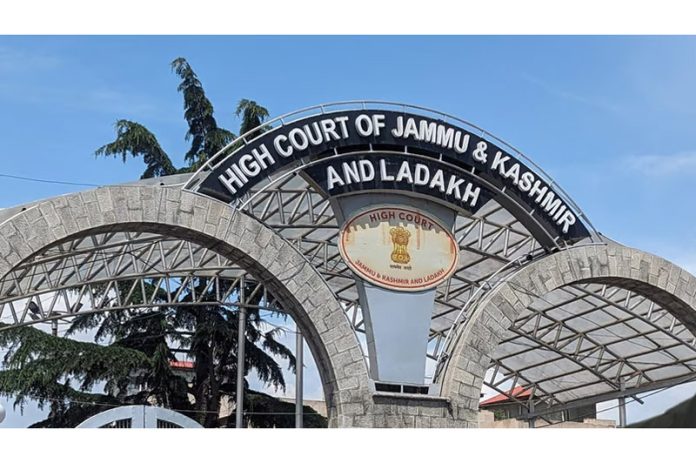Petition challenging Rule 14 of Employees Conduct Rules
Excelsior Correspondent
JAMMU, Sept 5: In a petition been filed by the Zahoor Ahmed Bhat, Senior Lecturer in Political Science in the School Education Department challenging Rule 14 of the Jammu and Kashmir Government Employees (Conduct) Rules, 1971 which prohibits a Government employee for taking part in politics, a Division Bench of Jammu & Kashmir and Ladakh High Court comprising Justice Atul Sreedharan and Justice Mohd Youasf Wani has issued notice to the UT and others.
DB further directed the respondents to file their reply within four weeks and Rejoinder, if any, within three weeks thereafter. “List on 21st October 2024 and in the meanwhile, the application of the petitioner dated 7th August 2024 be considered by the competent authority in accordance with law”, the DB added.
The petitioner has prayed before the Division Bench that Rule be declared ultra-vires and be quashed as it prevents the petitioner for taking part in the elections as a prospective candidate to the Legislative Assembly without resigning from his service as Senior Lecturer in Political Science in the School Education Department.
In the alternative, counsel for the petitioner has argued that Rule 14 be interpreted in a manner that does not prohibit a Government employee from standing for elections to the State Legislature provided that if he is elected, he would have to resign from his Government service. He further argued that Rule 14 only prohibits that taking part in politics or anti-secular and communal activities and does not prohibit taking part in the electoral process as a prospective candidate to the Legislative Assembly.
Advocate General DC Raina drew the attention of the court to Sub-Rule 3 of Rule 13, which according to him, has to be read in conjunction with Rule 14. This argument was made in order to clarify the ambiguity in the terms “politics”, “anti-secular” and “communal activities” as these words have not been defined in the Rules. Sub-Rule 3 of Rule 13 lays an embargo on the Government employee from uttering, writing or discussing or criticizing in public, in any meeting or any association or body, any policy or action taken by the Government and also prohibited the Government employee from participating in any discussion or criticism.
On the basis of Sub-Rule 3, AG submitted that participation in the electoral process and standing for election as a candidate to the UT (Legislature), is an impossibility without being critical of the existing Government/governance, existing policy of the governance for which speeches, which would be included in utterance, manifesto which would be included in writing and canvassing which would be included in “otherwise discussed or criticized in public” and as Rule 13(3) has not been challenged in the present petition, the examination of Rule 14 and whether it is ultra-vires is an impossibility.
AG also referred to Section 134-A of the Representation of Peoples Act, 1951 which provides for penalty for Government servants for acting as election agent, polling agent or counting agent. AG submitted that a Government servant if found acting as an election agent or a polling agent or a counting agent of a candidate at an election, shall be punishable with imprisonment for a term which may extend to three months, or with fine, or with both.
“Under these circumstances, this court on a prima facie appreciation of Section 134-A of the RP Act, 1951, is of the view that the penalty to be imposed is only for persons who are Government servants, but acting as election agent, or a polling agent or a counting agent of a candidate and does not extend or provide any penalty for a Government employee standing as a candidate himself”, the DB said.


